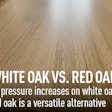OK, this is the last EPA blog for a Tuesday or two… However I wanted to share one comment that's been in my head since the CARB seminar a month ago. "This regulation could make wood the input of the last resort."
The comment was made in terms of the lack of a de minimis exemption on the regulations. De minimis can be viewed in two ways-first, in the small portion of the material in the final product. An example would be a gun stock, a knife handle, a bow grip. The thought was that by requiring all knife producers or gun manufacturers, etc., to have a record keeping burden (at a minimum), which, as explored in a previous blog post, can have severe financial penalties for failure to do properly, this regulation encourages them to move away from wood as an input. They are more likely to choose plastic or metal or whatever other material is a suitable substitute.
(The other way to look at de minimis would be for very small producers-the one-man shop who makes one custom table a month or something-yes, right now, under the law, potentially they would have to be certified.)
But think about how this law can make wood less attractive on the large scale. We're talking about calling composite wood products "chemicals" and "toxic" in nature. Those are very harsh labels!
- Under the proposed regulations, architects and builders can be discouraged from using composite wood products because of their own potential record keeping and due care burdens.
- Under the proposed regulations, brand names can be devalued as only manufacturers, not brands, can be certified and the EPA is looking to list approved manufacturers-a customer may not find your brand name on that list and assume your product is toxic.
- Under the proposed regulation, certification costs are largely fixed overhead-a large company or a large production run can spread that cost around so that the square-foot value is smaller. We're looking at making custom runs unaffordable. A special run of 1,500 ft2 of a special thick-faced wide plank might have the same fixed certification costs as a run of 100,000 ft2 rotary peeled. The special run is already more expensive-can it absorb the extra expense? We're going to see a big reduction in the appeal of wood-the amazing variety of colors, sizes, construction types, grades and species that we can offer the consumer. We're going to turn engineered wood into even more of a commodity then it is already.
- Under the proposed regulations, you could be required to reveal all your production techniques to anyone who asks. Customers can ask for press times for specific lots or test results for specific lots. Think of that record keeping burden for everyone in the supply chain, not to mention how your entire process could be up for public scrutiny-and your competitors' review. Beyond the obvious "OMG!" reaction, tell me too: What is that going to do for your willingness to innovate?
- With the JIW (Just in Warehouse) requirement to hold material until testing is completed, we're looking at the death of the JIT (Just in Time) world we live in now. If there's no delay in shipping an alternative material out, won't that further promote substitutions? Do you want to tell your customer, "Sorry, I've got it made, but I can't ship for another week until the tests come back proving it's not toxic."
Let's keep wood from becoming that input of last resort!
































